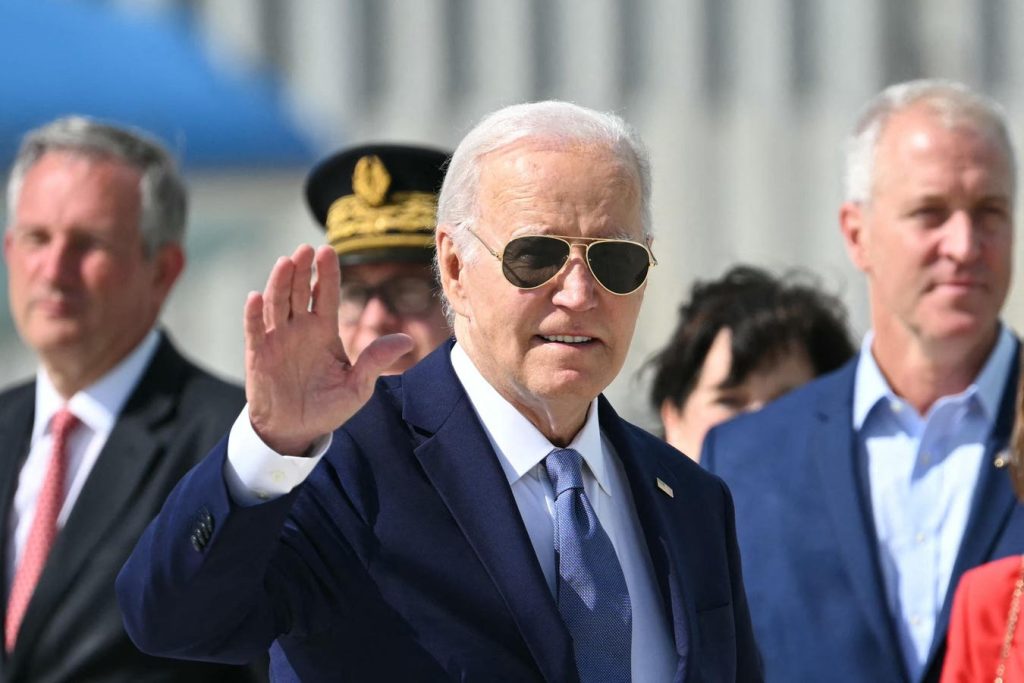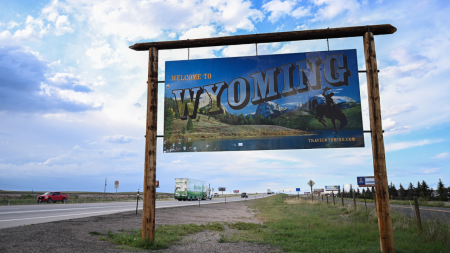The Education Department has approved another $613 million in student loan forgiveness under President Joe Biden’s new SAVE plan. But the program is facing two legal challenges, and a flurry of recent developments may determine whether borrowers will continue to receive relief under the program. A federal judge issued a key ruling on the program last week, with another significant decision expected any day. Meanwhile, a federal appears court issued a significant decision for a related program last month.
SAVE — which stands for the Saving on a Valuable Education Plan — is a new income-driven repayment program that can lower monthly payments and lead to eventual student loan forgiveness. The Biden administration has been trumpeting the program as the most affordable repayment plan for federal student loans ever created. But the plan’s detractors, including a coalition of 18 Republican-controlled states led by Kansas and Missouri, are trying to block the program and halt its benefits.
Here’s the latest.
$613 million In Student Loan Forgiveness For 54,300 Borrowers Through SAVE
The SAVE plan has a number of benefits including a larger income exemption and more affordable repayment formula, which can result in significantly lower monthly payments compared to older IDR plans. SAVE also has a unique interest benefit that can wipe out any accruing interest that exceeds a borrower’s monthly payment. This benefit is designed to put an end to negative amortization, a process by which a borrower’s student loan balance can balloon over time due to accruing interest that periodically gets capitalized.
But another unique feature of SAVE is fast-tracked student loan forgiveness. Like other IDR plans, the SAVE plan discharges any remaining balance after 20 or 25 years in repayment. But borrowers can be eligible for faster loan forgiveness is they borrowed relatively small amounts to start. Those who took out $12,000 or less in federal student loans can become eligible for forgiveness in only 10 years, with the repayment term increasing by one year for every additional thousand dollars borrowed.
The Biden administration has been approving borrowers for this fast-tracked student loan forgiveness under SAVE in batches since January. In the latest wave of approvals, more than 54,000 borrowers received discharges totalling $613 million. This brings total loan forgiveness approvals under SAVE’s accelerated provision to $5.5 billion for 414,000 borrowers since the beginning of the year, according to the Education Department.
Biden Administration Gets Partial Student Loan Forgiveness Victory In One Challenge
On Friday, the Biden administration scored a partial victory in one of the two GOP-led lawsuits seeking to block the SAVE plan. A federal court in Kansas partially granted the administration’s request to dismiss the challenge, finding that eight of the 11 states which brought the suit were unable to demonstrate that they would be harmed by the student loan forgiveness benefits of the program, and therefore could not show that they have standing to sue — a requirement to bring a legal action in federal court.
The judge concluded that three other states named in the suit — South Carolina, Texas, and Alaska — demonstrated that they could be injured by the SAVE plan, but only “barely.”
“Their standing theory is weaker than the one that prevailed in Biden v. Nebraska,” wrote the judge, referencing the 2023 Supreme Court decision that struck down Biden’s first mass student debt relief plan. “And the allegations and declarations supporting their standing theory are conflicting.” Nevertheless, the judge found that the three states had shown that they could be harmed by the student loan forgiveness benefits of SAVE because of impacts to their state revenues, and allowed the lawsuit to proceed for those three states.
The most likely next step is that these remaining states will try to temporarily block SAVE through a motion for a preliminary injunction, essentially to freeze the program while the litigation continues. However, such a request will face tougher scrutiny than the states encountered in the motion to dismiss proceeding. And it is unclear if the judge — who expressed clear skepticism of the states’ core arguments — would agree to impose such an injunction under a heightened standard.
Ruling Expected Soon In Other Challenge Seeking To Block Student Loan Forgiveness Under SAVE
Meanwhile, a federal court in Missouri is also considering whether or not to impose a preliminary injunction to block SAVE. A different coalition of states led by Missouri filed a separate lawsuit against the Biden administration in that jurisdiction. Missouri is the same state that spearheaded the legal challenge to Biden’s first student loan forgiveness plan ultimately struck down by the Supreme Court nearly a year ago.
Last week, the federal district court in Missouri held a hearing to consider the states’ request for an injunction. The judge offered few hints about how he would rule, although there was some implicit criticism of state leaders for waiting so long to challenge the SAVE plan, given that the Biden administration first unveiled the program more than six months ago. Such a delay could undercut the argument that they face imminent harm as a result of SAVE’s student loan forgiveness benefits.
A ruling is expected as soon as this week. The challengers argued that if their request is granted, borrowers already enrolled in SAVE (and those who have already gotten loan forgiveness) would not be impacted. However, the parameters of such a ruling would be up to the judge. And a decision on the preliminary injunction is just the first step of the litigation process; borrowers who have already enrolled in, or benefited from, the SAVE plan could still be at risk from appeals or future rulings as the lawsuit progresses.
Biden Administration Prevails In Separate Challenge Over Related Student Loan Forgiveness Plan
Separately, last month the Biden administration scored a significant victory when a federal appeals court upheld the dismissal of a legal challenge to another student loan forgiveness initiative called the IDR Account Adjustment. That program, which has already allowed upwards of a million borrowers to eliminate their federal student loan debt, can credit borrowers with time toward their IDR repayment term for past periods that previously wouldn’t have counted.
The Sixth Circuit Court of Appeals rejected the arguments made by the challengers — two conservative-leaning nonprofit groups — that loan forgiveness under the account adjustment would reduce the benefits of Public Service Loan Forgiveness and inhibit their ability to recruit and retain employees. The groups have not indicated whether they intend to appeal further, but are “considering their legal options.”
Coincidentally, the Biden administration extended a key consolidation deadline for the IDR Account Adjustment to June 30. This means that borrowers who must consolidate their loans to receive the student loan forgiveness benefits of the initiative have a little more time to act. And with the appeal before the Sixth Circuit now decided, these borrowers have a little less to worry about.
Read the full article here












